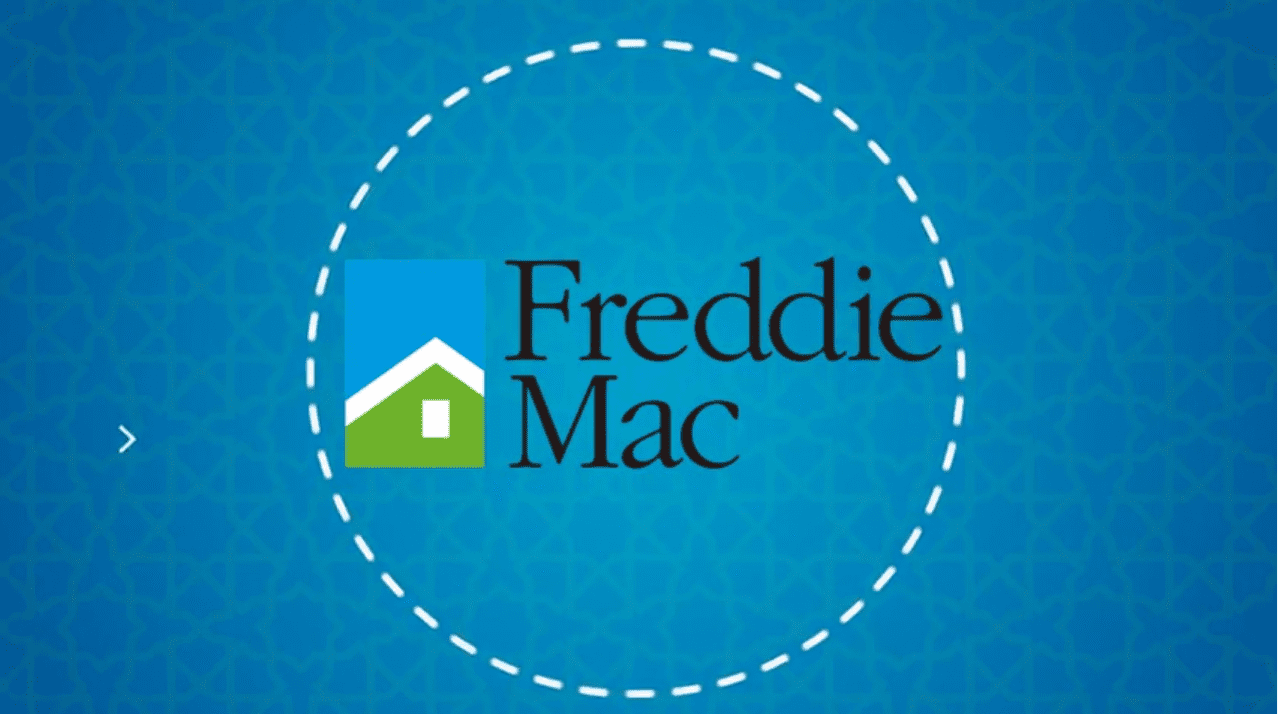Non-Bank Mortgage Financiers & Servicers: What to Know

What is a Non-Bank Mortgage Loan?
Mortgage loans provided by banks were once the default method of paying for a large purchase such as a home, but alternatives are growing in popularity. Today, more companies that are not banks are providing financial services such as home financing.
Examples of non-bank financial companies include mortgage lenders, investment banks, insurance companies, and money market funds, as well as a category quickly growing in popularity: faith-based alternatives to a traditional loan.
Banks in the United States cannot avoid dealing with interest. Non-bank financiers such as Guidance Residential—a provider of Islamic home financing—are able to provide services that do not deal with interest, and this is one aspect that appeals to a growing number of consumers.
How are Non-Bank Lenders Funded?
Banks in the United States are required to lend out a percentage of their deposits as loans, charging interest on those loans. Interest thus provides a major source of funding for them. Non-bank institutions do not have this requirement. This allows them to avoid dealing with interest if that is important to their business model.
One source of funding for many non-bank financiers is investors. Guidance Residential, for example, receives funding by an arrangement with Freddie Mac, a government-owned corporation that helps support the home financing market. Freddie Mac—which is not a bank and does not lend money—makes investments to take a co-ownership stake in properties financed by Guidance Residential. This allows Guidance to assist more homeowners to finance their homes.
Non-banks Issued More Than Two-Thirds Of Mortgages In 2020
Non-bank mortgage loans and alternatives to mortgages are growing quickly in popularity in the wake of the Great Recession as a viable alternative to traditional banks. In 2020, more than two-thirds of all mortgages were issued by lenders that were not banks—their highest market share to date.
Non-bank Mortgage Servicers Pros and Cons
Non-bank mortgage servicers are bound by less regulation than banks. This has allowed them greater freedom in their business practices, which—depending on how companies use this freedom—can result in either pros or cons for home buyers and for the industry as a whole.
Less Regulation Than Traditional Lenders
Some non-bank mortgage providers take advantage of lighter regulations to accept higher-risk customers and offer them loans that banks will not provide. This can eventually trap struggling homeowners in mortgages they can’t afford. This type of loan also incurs greater risk for these companies, which they often pass along in the form of high fees to their clients.
Through such tactics amid a lack of regulation, some of these companies have earned the term “shadow banks,” and some experts see them as a threat to financial stability.
On the other hand, the freedom afforded to non-bank companies has allowed positive innovation to flourish as well. Without being weighed down by cumbersome regulations and outdated practices, non-banks have led the way in advances such as more streamlined application processes, improved online accessibility, and faster response times.
Non-bank financial companies have proliferated since the Great Recession, meeting demands that were not being met by traditional banks. Ultimately, the effect of each non-bank financier depends on its individual business practices.
Regulation with Guidance Residential
Guidance Residential is a non-bank home financing provider that seeks out additional regulations to maintain the highest standards while pioneering positive innovations.
Guidance Residential developed an Islamic alternative to a traditional mortgage that is growing in popularity for its adherence to faith-based financing guidelines as well as its more equitable and just approach compared to a traditional mortgage.
Guidance’s shariah-compliant home financing business model makes use of the company’s non-bank status to provide services free of interest, or riba. The Declining Balance Co-ownership Program is a partnership rather than a lender-borrower relationship. In this program, the company and homebuyer buy a home together as partners, and the homeowner gradually buys out the company’s share of the property.
The company shares some of the risks with the homeowner, which a conventional lender does not do, while the homeowner retains all of the benefits of homeownership as well as the profit in the event that they decide to sell the home.
Guidance Residential voluntarily takes on additional regulation and annual auditing through a board of Islamic finance experts in order to ensure best practices, transparency, and compliance with Islamic financial principles. This provides greater security and transparency than other non-bank options.
>> Related read: What Is an Islamic Mortgage and How Does It Work?
Greater Loan Approval Flexibility
Bound more loosely by lenient regulation, some non-bank mortgage providers accept higher-risk customers such as those with lower credit scores. Aspiring homeowners looking to take on a fixer-upper or to apply for a VA/FHA mortgage may have a higher likelihood of approval compared with a bank.
This can benefit a brand new home buyer in the short term by getting them into the home of their dreams, but in the long term, they may pay hidden fees or face foreclosure if they have been granted a loan they can’t afford to pay back.
Approval with Guidance Residential
Not all non-banks loosen their standards to take on riskier customers. Guidance Residential uses credit scores and the applicant’s documentation to ensure that potential homebuyers are likely to be able to remain comfortably in their homes in the long term. Unlike the sometimes-predatory approach of some mortgage lenders with a lender-debtor relationship, Guidance Residential’s program creates a more equitable partnership with a home buyer, and thus the company looks for qualified customers to build this relationship with.
Guidance does, however, believe that all families deserve to attain homeownership, so it makes extra assistance available for qualified first-time homebuyers.
Streamlined Applications
One of the appeals of non-bank financiers is the greater ease of the application process. Some non-banks have created online application processes that are much more streamlined and convenient than traditional banks, and they can provide a faster response as well.
Applying with Guidance Residential
Guidance Residential provides a streamlined and simplified online application process, making it easier to fill out forms and faster to receive a response. Home buyers can receive a quick estimate of the financing they might be able to receive through a 10-minute pre-qualification, and they can also become fully pre-approved for home financing by submitting all documents online as well.
Personal assistance is available via phone and in person, but many resources are also available online. These include application checklists to help customers gather the necessary documentation, as well as estimation calculators to try out various options and see the resulting financing amounts and payments. They can also reach their Account Executives and find local trusted real estate agents.
Higher Interest Rates And Fees
As some non-bank financial companies take advantage of less regulation to lower their standards and raise their approval rates, the flip side is that they are incurring more risk. They deal with that risk by charging higher rates and fees—sometimes hidden fees.
Riba-Free Payments with Guidance Residential
Guidance Residential does not offer high-risk financing. Payments are on par with normal for home financing, and fees are disclosed and capped.
A benefit for many of its customers is that Guidance Residential’s model of financing is free of interest, or riba, which is prohibited in Islam. Under Islamic guidelines, lenders should not profit from loaning money to someone in need. In addition, financial transactions must be backed by assets, which is not the case with a mortgage loan – a transaction that essentially sells money for the promise of more money.
While interest is not allowed in Islam, business partnerships are permitted, so Guidance Residential has structured its program as an investment partnership between the company and the homeowner. This results in a more equitable relationship. In this model, the home buyer pays Guidance a monthly fee for the full use of their property while gradually buying out the company’s share. The fees are similar in amount to a mortgage, but the foundation is entirely different.
Not Too Big to Fail
One of the concerns with a non-bank financial institution is that they also lack some of the backing banks enjoy from the government. If a consumer does not choose wisely, they could run the risk of investing in an attractive new company that then goes out of business.
20 Years with Guidance Residential
Guidance Residential, the leading provider of Islamic home financing in the United States, began operations back in 2002. It has been able to thrive through every economic downturn—growing to serve over 35,000 families.
Pre-qualify for financing today
Guidance Residential combines an innovative, equitable, and user-friendly approach to home financing with high regulation standards and transparent business practices. Ready to buy a home? Pre-qualify online today in just 10 minutes or less.
Originally published April 2015, updated September 2022.




